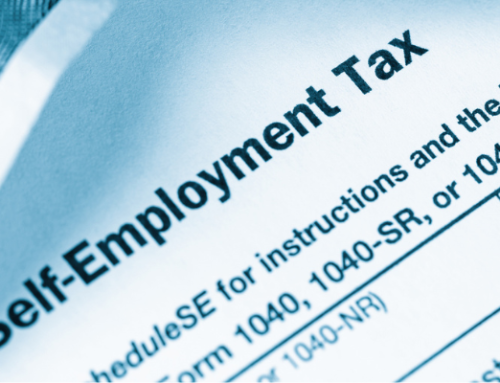Source: RSM US LLP.
ARTICLE | October 03, 2023
Executive summary: North Carolina budget finally reaches the finish line
On Sept. 22, 2023, North Carolina Gov. Roy Cooper announced his intention to allow the state’s budget bill, House Bill 259, to become law without his signature. Almost three months after the start of the fiscal year, the North Carolina House approved the measure by a 70-40 vote and the state Senate by a 26-17 vote. After much debate, the budget includes accelerated individual income tax cuts, changes to the corporate franchise tax, a new ride sharing tax, new and modified sales and use tax exemptions and an extension to file a pass-through entity tax election for tax year 2022.
North Carolina budget passes with tax cuts and other modifications
Individual income tax cuts accelerated
The budget bill accelerates previously scheduled individual income tax rate reductions by one year. The 4.75% rate for 2023 remains unchanged. Beginning in 2024, the rate is reduced to 4.5%, and in 2025, the rate is reduced to 4.25%. After 2025, the rate becomes 3.99%. The budget also provides for additional rate reduction triggers which could bring the rate to as low as 2.49% in subsequent years if certain state revenue collection thresholds are achieved.
Corporate franchise tax reduction for C corporations
Beginning in 2025, and affecting 2024 corporate income tax filings, the corporate franchise tax will be imposed at a rate of $500 for the first $1 million of tax base and $1.50 per $1,000 of base exceeding $1 million. Currently, C corporations are subject to a rate of $1.50 for every $1,000 of their tax base. The minor reduction in corporate franchise tax continues the state’s recent history of cutting corporate taxes. North Carolina’s corporate income tax is currently one of the lowest in the nation at 2.5% and is scheduled for a full phaseout by the end of the decade.
Sales and use tax changes
The budget legislation makes several modifications to the sales and use tax as follows:
- Extends the aviation gasoline and jet fuel exemption for commercial aircrafts to Jan. 1, 2029 from Jan. 1, 2024
- Extends an exemption for certain retail sales to professional motorsports teams or a related member of a team for use in competition in a sanctioned race series to Jan. 1, 2028, from Jan. 1, 2024
- Modifies the definition of qualified aircraft to be 2000 pounds and above for purposes of aligning the aviation parts and accessories exemption with the labor exemption
- Creates a new exemption for certain breast pumps, collection and storage supplies
- Expands an exemption for certain sales of fuel and tangible personal property used or consumed by certain freight vessels
State excise tax changes
The budget creates a new excise tax on for-hire ground transportation services, including traditional rideshare services such as Uber and Lyft. The tax is imposed on the gross receipts from each for-hire ground transport service at the rate of 1.5% for exclusive rides and 1% for shared rides. An ‘exclusive ride’ is a for-hire ground transport service requested by a passenger who requests exclusive use of the vehicle. A ‘shared for-hire’ service is when an individual has been matched with another individual by a for-hire transport service provider. The tax is intended to be passed on to the purchaser of the service and be collected by the transport service provider.
The method of taxing snuff products is altered to weight-based as well as the tax base expanded to include alternative nicotine products. Specifically, snuff products will now be taxed at the rate of forty cents per ounce. Furthermore, alternative nicotine products – those products that contain nicotine for human consumption, but do not include tobacco or vapor products – will be taxed at a rate of ten cents per container containing up to 20 units and at a rate of one-half cent for any amount in a container over 20 units.
Pass-through entity tax election extension and modification
For partnerships that could not make the pass-through entity tax election on a timely filed tax return may make the election by filing an amended return on or before Oct. 15, 2023. Additionally, the bill expands who can be an eligible owner by including entities classified as corporations for federal income tax purposes and partners that are a trust if such trust does not have as a beneficiary any person other than an individual, an estate, a trust or an organization described in section 1361(c)(6) of the Internal Revenue Code.
North Carolina privilege tax repealed
The budget also repeals the state’s privilege tax on certain professionals such as lawyers, accountants, physicians, engineers, real estate agents, and others, effective July 1, 2024. The privilege tax is a state tax imposed for the privilege of carrying on certain business in the state.
Takeaways
The delayed budget was mostly due to non-tax provisions. Gov. Cooper, a Democrat, ultimately had limited veto opportunities as both chambers of the legislature are controlled by the Republican party who also hold a veto-proof majority, qualifying each chamber for the required three-fifths vote by a single seat. North Carolina continues the trend of tax cuts for individual and corporations coming out of the pandemic, but like other states, have made smaller cuts as recent revenue collections and revenue forecasts both indicate less growth in the near future.
North Carolina taxpayers should be aware of these changes and are highly encouraged to discuss House Bill 259 with their state and local tax professionals for more information on these taxpayer-friendly modifications.
This article was written by Mo Bell-Jacobs and originally appeared on 2023-10-03. Reprinted with permission from RSM US LLP.
© 2024 RSM US LLP. All rights reserved. https://rsmus.com/insights/tax-alerts/2023/north-carolina-budget-passes-tax-cuts-other-modifications.html
RSM US LLP is a limited liability partnership and the U.S. member firm of RSM International, a global network of independent assurance, tax and consulting firms. The member firms of RSM International collaborate to provide services to global clients, but are separate and distinct legal entities that cannot obligate each other. Each member firm is responsible only for its own acts and omissions, and not those of any other party. Visit rsmus.com/about for more information regarding RSM US LLP and RSM International.
The information contained herein is general in nature and based on authorities that are subject to change. RSM US LLP guarantees neither the accuracy nor completeness of any information and is not responsible for any errors or omissions, or for results obtained by others as a result of reliance upon such information. RSM US LLP assumes no obligation to inform the reader of any changes in tax laws or other factors that could affect information contained herein. This publication does not, and is not intended to, provide legal, tax or accounting advice, and readers should consult their tax advisors concerning the application of tax laws to their particular situations. This analysis is not tax advice and is not intended or written to be used, and cannot be used, for purposes of avoiding tax penalties that may be imposed on any taxpayer.




